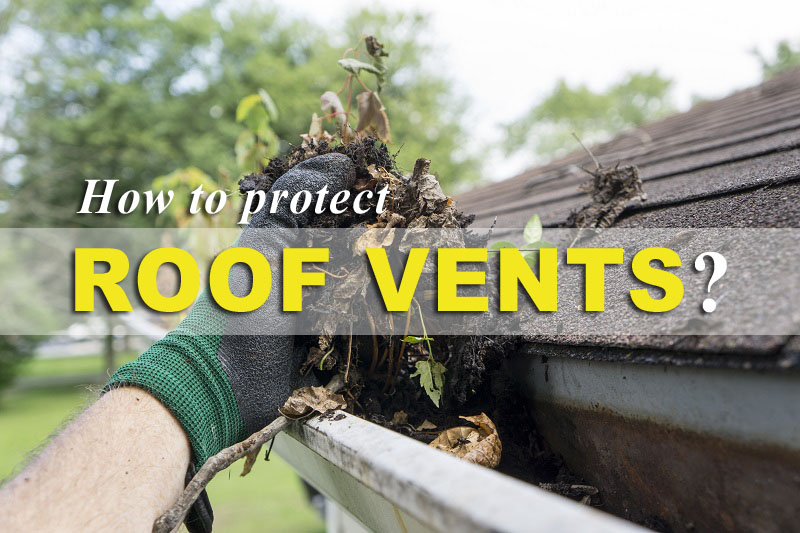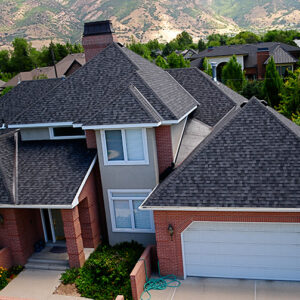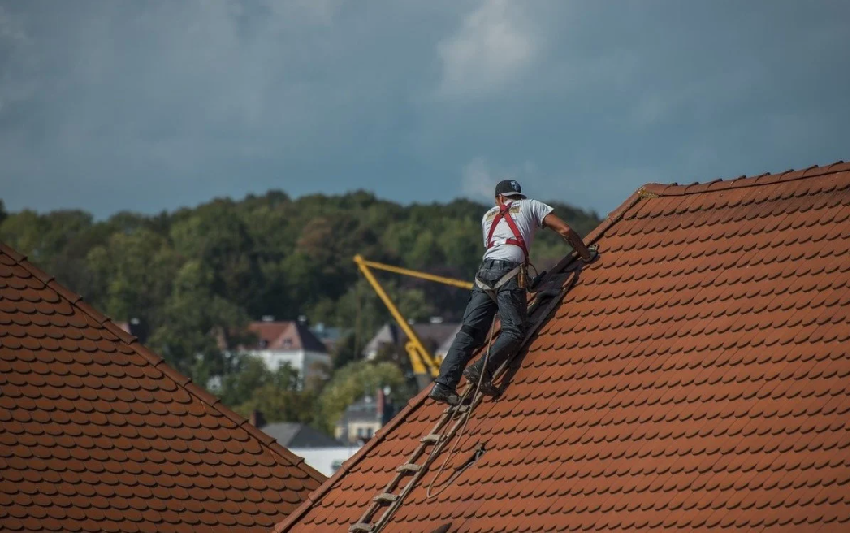Roof vents are necessary for a healthy attic. Air must circulate through the soffits and the roof vents to prevent condensation. If moisture builds up within the attic, the insulation will develop mildew and stop working properly. Regional building codes require that attic spaces have roof vents, and they have standards for their installation.
Unfortunately, these vents are vulnerable to wildlife. Roof vents are often capped with plastic, which can be chewed by squirrels or torn off by raccoons. The animals can feel the warm air that escapes the roof vents, and they want to get inside. Attics present urban wildlife with an opportunity to den somewhere warm and above ground. All they have to do is break through the roof vents.
Why should I protect my roof vents?
Animal break-ins may be more common than you think. Raccoons are smart, nocturnal animals with dexterous paws. They have no trouble figuring out that the roof vents connect to the attic. Squirrels have very strong teeth, and they recognize that the attic is much like a hollow tree. Invasions are common in the spring, when females need a place to nest, and in the fall, when the animals need shelter from the cold.
Your roof vents should be protected because animals will cause a serious amount of damage to the attic. Raccoons will contaminate the insulation with large piles of feces, forcing you to replace the insulation entirely. Squirrels will damage the attic as well, chewing on cables and risking fire. It is best that you protect your roof vents to avoid these problems.
Here’s what you can do to keep animals off your roof vents and out of the attic.
1. Invest in animal-proof covers
The most direct solution is to invest in roof vent covers. Simply cover your roof vents with a thick steel mesh that animals cannot chew or break. Purchase a half-inch, galvanized steel mesh, cut it to fit your vents, then screw it directly into the roof.
Because accessing the roof may be dangerous, reach out to Vista Roofing or a wildlife removal expert. A professional can install some high-quality covers for you. He or she will ensure that the mesh is properly installed. Many companies offer warranties with these covers, so if an animal breaks through, the company will return and fix the problem.
2. Maintain the roof and gutters
It is important that you maintain the roof, not only for shelter from the elements but from the wildlife in your area. If your roof is damaged or falling apart, animals will come looking for a way into the attic. Make sure that your shingles are in good shape and that there are no openings on the sides of the roof. Check that your vents are not blocked and that the soffits have no holes in them.
You should also clean the gutters every spring and every fall. Clear them of debris and fallen leaves so that you do not attract squirrels. Run the hose through them when you are done to make sure that water flows through them properly. Clogged gutters risks flooding the basement and damaging the interior of the home.
3. Maintain the yard and restrict access to food
Raccoons, squirrels, and other urban animals are attracted to yards that are overgrown and full of food. Maintain the yard so that you reduce the number of animal hiding spots and sources of food. Mow the lawn on a regular basis. Pull weeds, rake the leaves, and pick up any fruit that have fallen to the ground. The tidier the yard, the better. The animals will go elsewhere.
Put a fence around your vegetable garden or cover it with hoops and an ultrafine mesh. Get rid of the bird feeder. Always clean up after a meal outside and keep the barbecue clean. Use lidded garbage cans and keep those clean as well. Wipe them down with vinegar or disinfectant every few months to reduce odours.
4. Hire a professional for help
Getting onto the roof can be dangerous, and you want to make sure you that you are using the right materials when pest-proofing the vents. Hiring a professional is the easiest and most reliable thing you can do to protect your vents from wildlife. A professional will do it safely and they will probably offer you a warranty. Call a local roofing company for help.




